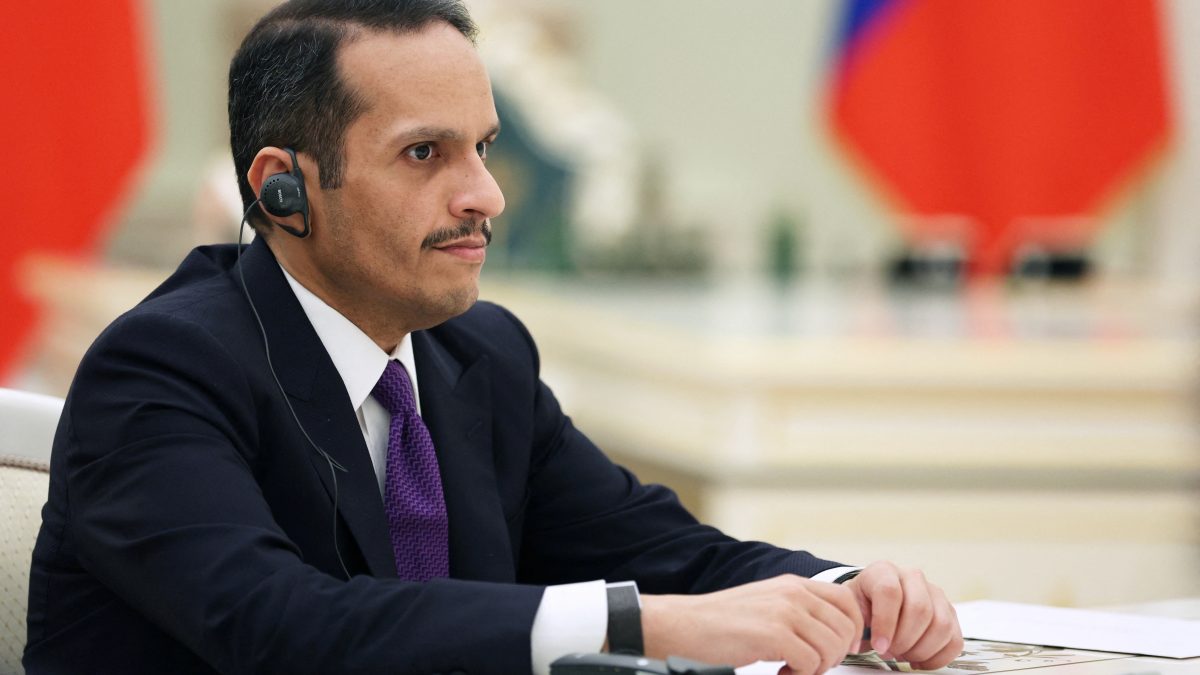Qatar’s prime minister said Israel’s strike on Hamas leaders in Doha shattered fragile ceasefire efforts, accusing Benjamin Netanyahu of “killing any hope” for hostages still held in Gaza
Qatar’s prime minister has accused Israeli Prime Minister Benjamin Netanyahu of destroying any chance of securing the release of hostages still held in Gaza, following Israel’s strike on Hamas leaders in Doha earlier this week.
In an interview with CNN’s Becky Anderson, Sheikh Mohammed bin Abdulrahman bin Jassim Al-Thani said the attack amounted to “barbaric action” and “state terror,” charging that Netanyahu’s decision had “killed any hope” for the families desperate for a ceasefire deal.
Al-Thani explained that he had met relatives of one of the hostages on the very morning of the strike. According to him, they were relying solely on Qatar’s mediation efforts for a breakthrough, with no other channels offering realistic prospects of release. He suggested that Netanyahu’s move effectively erased those fragile hopes.
‘State terror’ and betrayal?
The Qatari leader did not soften his words when characterising the strike, which targeted Hamas leaders in the Qatari capital. He told CNN that the attack left him enraged, declaring it a form of “state terror” and an act that betrayed the very principles of diplomacy. His condemnation echoed remarks he had made at a heated press conference shortly after the strike, where he accused Israel of undermining mediation with a reckless escalation.
Al-Thani also confirmed that a 22-year-old Qatari security officer was killed in the attack. He noted that his government was still working to determine whether more people were missing or injured, stressing that the strike had endangered Qatari citizens.
Fate of Hamas negotiator unclear
Questions remain about the fate of Hamas’ chief negotiator, Khalil al-Hayya, who was reportedly a target in the Israeli operation. When pressed by CNN on the negotiator’s whereabouts, Al-Thani said that there had been “no official declaration” regarding his status. Hamas initially claimed that five of its members were killed but acknowledged that the leadership delegation had survived the strike.
This uncertainty has added further tension to already strained mediation efforts, which were expected to yield Hamas’s formal response to a US-backed ceasefire proposal on the very day of the Doha strike. A diplomat briefed on the talks told CNN that Hamas had been preparing to issue its reply Tuesday evening, but the attack derailed the process.
Ceasefire talks in jeopardy
Al-Thani argued that Israel and Hamas were now in danger of running out of opportunities to secure a ceasefire. He admitted he could not predict what Hamas’s response to the latest US principles for a truce would have been had the Doha strike not occurred. Still, he made clear his belief that Netanyahu had sabotaged any potential progress.
The Qatari prime minister went further, saying he had begun to rethink his country’s role in mediation. He accused Netanyahu of wasting Qatar’s time in recent weeks by engaging in what he described as “meaningless” talks. While Doha had initially pledged not to be deterred by the strike, Al-Thani revealed that his government was now “reassessing everything” related to its involvement. He added that Qatar was holding detailed discussions with the United States about the way forward.
US reactions and diplomatic strain
The United States, which maintains its largest military base in West Asia in Qatar, was reportedly not informed in advance by Israel about the strike. According to a US official, President Donald Trump only learned of the attack shortly before it occurred, and not from Israel but from senior military briefings. Trump later instructed his envoy Steve Witkoff to update Qatar directly, highlighting Washington’s concern over the fallout.
Although Trump did not publicly condemn the strike, his spokesperson said the president was troubled by the developments. Al-Thani told CNN that US officials had repeatedly expressed support for Qatar and confirmed that he was in constant communication with Washington to explore possible responses.
Regional consultation and summit plans
Qatar is now looking beyond Washington to rally a broader regional response. Al-Thani said his government was consulting with Arab and Islamic partners to formulate a collective course of action. He stressed that Qatar would not dictate how others should respond but insisted that a meaningful deterrent was necessary to stop what he called Israel’s “bullying.”
He also announced plans for an Arab-Islamic summit in Doha in the coming days, where leaders are expected to discuss coordinated steps against Israel’s strike. According to him, the goal is to produce a unified message that could reshape the diplomatic environment in the wake of the attack.
The Doha strike has left Qatar questioning the very foundation of its mediating role in the Israeli-Palestinian conflict. Once seen as a critical broker capable of bridging divides between Hamas, Israel and the United States, Doha is now reassessing whether its efforts still carry weight. Al-Thani accused Netanyahu of undermining stability and peace by deliberately targeting negotiations in the Qatari capital.
As hostages’ families continue to plead for resolution, the Qatari prime minister warned that both Israel and Hamas may soon find that they have exhausted all chances of reaching a ceasefire. In his view, Netanyahu’s decision not only endangered lives but also dismantled the fragile trust that had sustained months of delicate talks.
End of Article

)

)